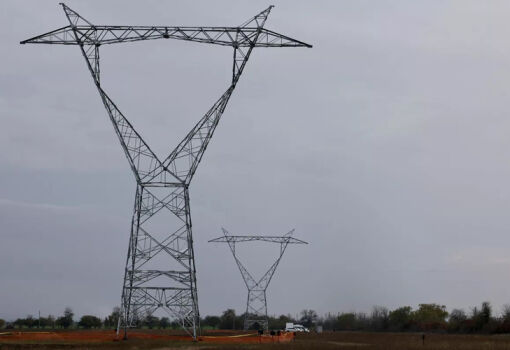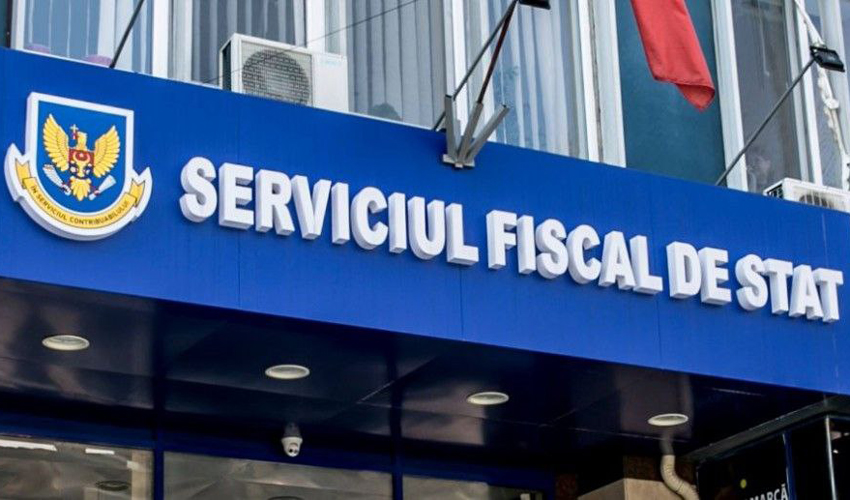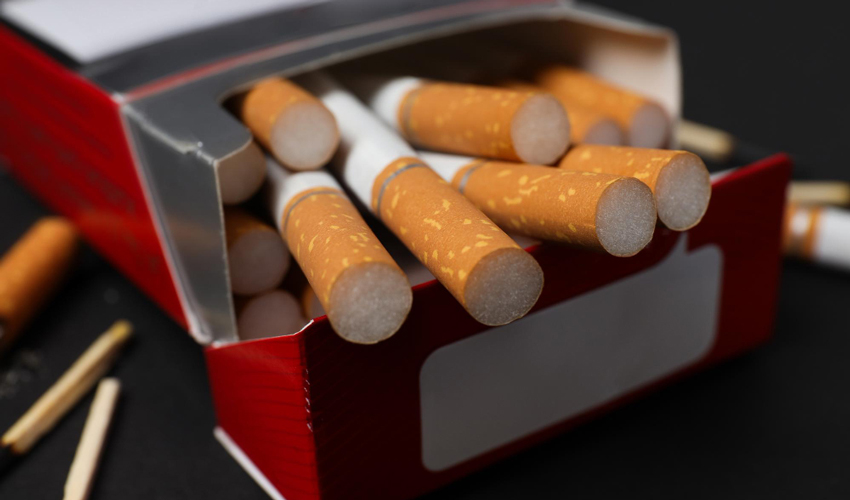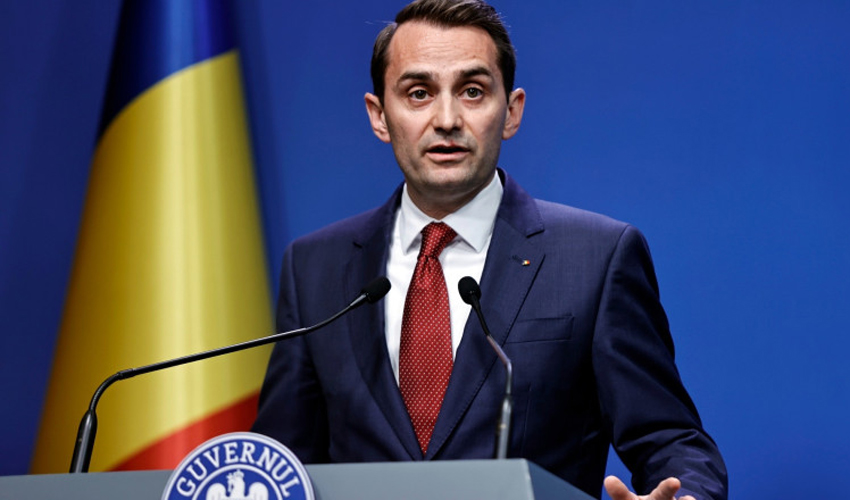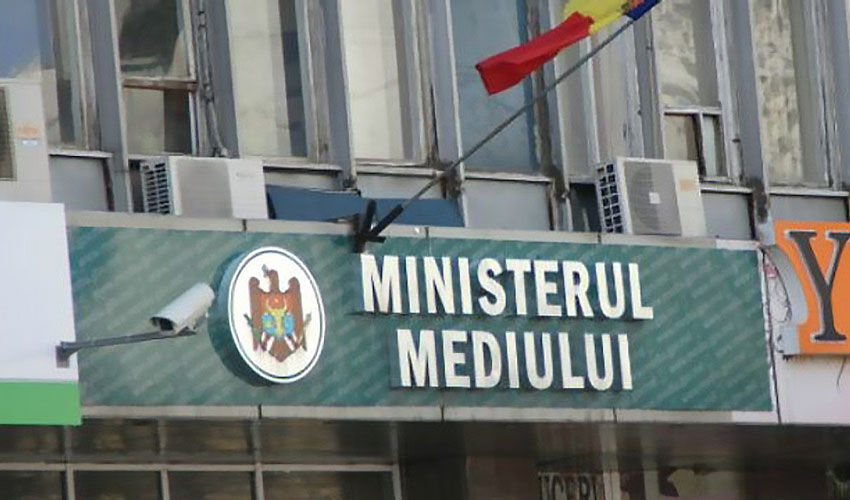
“After four years, the Environment Ministry has implemented several major projects. I am referring, first of all, to the National Program of Forest Expansion and Reforestation, as well as to the Solid Waste Moldova project, within which we will create a waste management infrastructure throughout the country,” said Environment Minister Sergiu Lazarencu.
During the first two years of implementation of the National Afforestation Program, 416 million lei were allocated, which is the largest sum ever invested in the forestry sector. Thanks to these funds, more than 17,000 hectares have already been afforested.
To continue this strategic program, the largest ever financing in the field of environmental protection was attracted from external sources and grants: €200 million from the European Investment Bank; €15 million grant from the European Union; $7.9 million grant from the Global Environment Facility; $49 million grant from the Global Climate Fund.
In total, more than €270 million has already been raised, which will be used to plant more than 70,000 hectares of forest in the coming years.
The Ministry of Environment has adopted a number of important normative acts to strengthen the legal framework for the protection and sustainable management of forests in Moldova.
The amount of damages for illegal logging was increased. A new Forest Code was adopted, which introduces clearer and stricter rules for the responsible management of forests, including those belonging to local authorities.
In addition, to improve the forestry sector, the Ministry of Environment is initiating a reform of the Moldsilva Agency. This reform will aim to improve institutional efficiency, increase salaries and improve the working conditions of the staff working in this area. The ultimate goal is to ensure the continuity and success of the National Afforestation Program.
A number of significant achievements were also noted in the field of waste management. Secretary of State Grigore Straulat presented the current status of the most important national projects in the field of waste management.
“After many years during which the 2013 Strategy remained a rather declarative document without tools and resources for implementation, we have managed to adopt and implement the National Waste Management Program for 2023-2027, a strategic operational document with clear actions, deadlines and responsibilities,” said Stratoulat.
Currently, the works are at the stage of full completion of procurement in Regions 5 and 8, comprising the districts of Ungheni, Nisporeni, Calarasi and Briceni, Ocnita, Edinet and Dondusani, respectively, where integrated waste management systems – collection centers, sorting stations, landfills and composting sites – are being formed.
For the first time in Moldova, a modern infrastructure complying with European standards is being built for the entire waste management cycle. The project will be extended to the whole country by securing financing and completing feasibility studies by 2026.
On the legislative side, the Law on the State Sanitary Service was drafted and adopted this year, which clearly regulates the roles, responsibilities and quality standards of public services. The law introduces the principle of real cost of service, tariff transparency and mandatory selective collection, providing a stable framework for partnership between local governments and regional operators to ensure economic efficiency, environmental protection and the provision of modern public services accessible to all citizens.
Another area where significant progress has been made is the promotion of the circular economy by updating the regulatory framework for Extended Producer Responsibility (EPR). Reporting, traceability and control mechanisms have been improved, providing producers and collective organizations with a clear and predictable framework.
Central to this transition is the establishment of a packaging deposit system that will come into effect on January 1, 2027. This system will contribute to reducing environmental pollution and increasing recycling rates.
In the area of responsible management, a new Subsoil Code has also been developed, which completely modernizes the legal framework for the use of mineral resources. The new code ensures transparency, sustainability and accountability in the management of natural resources through clear permitting procedures, involvement of local communities in the decision-making process and integration of environmental impact assessment from the initial stage of mining.
In addition, the code introduces mandatory financial guarantees for environmental remediation and land reclamation to ensure that economic activities provide both profits and a restored and healthy environment.
State Secretary Aliona Rusnak spoke about the progress made in climate change adaptation and mitigation through modern legislative framework and implementation of national and international projects.
“Over the last four years, Moldova has moved from discussions to practical actions in the field of climate change adaptation and mitigation, as well as in the field of building resilience to climate change.”
Through the Law on Climate Change Measures, the country has established the first national legal framework harmonized with the Paris Agreement and the European Green Agreement, aimed at achieving climate neutrality by 2050. For the first time, a National Climate Management System coordinated by the Prime Minister was established, with sectoral plans, interim targets and performance indicators monitored by the National Commission for Climate Change Measures.
A National Strategy for Disaster Risk Reduction has been approved to improve the country’s preparedness for disasters and shocks due solely to climate change in the event of a crisis or emergency. A Disaster Risk Reduction Program is currently being developed.
A National System for Monitoring and Reporting of Greenhouse Gas Emissions and Other Climate Change Related Information has been developed.
In the field of biodiversity, the Republic of Moldova was included in the European initiative Natura 2000 within the framework of the Eastern Partnership, and digital mapping of priority habitats was completed in 2025, which made it possible to prepare the designation of future areas of public interest. The legislation on genetically modified organisms was modernized, strengthening import controls and risk assessment, and Law No. 225/2022 and the amendment to Law No. 94/2007 introduced the concept of the Emerald Network, designating 61 areas of national and international importance.
Progress was also made in the field of air protection by harmonizing it with the European regulatory framework, namely the establishment of an integrated air quality management system in accordance with EU requirements.
At the same time, the Hydrofluorocarbons Phase-out Program by 2045 was approved, which aims to reduce the consumption of hydrofluorocarbons by 80% by 2045 through the promotion of new environmentally friendly technologies that contribute to the development of a green economy.
Moldova is implementing international environmental projects, including the conservation and sustainable management of wetlands in the Prut River basin, and updating the Biodiversity Strategy and Action Plan with support from UNEP/GEF. With support from the EU, GCF, GEF, FAO, IFAD, World Bank, UNDP, Japan and Sweden, programs for forest cover restoration, sustainable soil management and erosion control green infrastructure have been implemented on an area of about 25,000 hectares.
In the field of air quality control, seven automatic stations were installed in Chisinau, Balti, Cahul, Ungheni and Soroca, connected to the European EIONET platform, with data available to the public in real time. The first mobile emission measurement laboratory for unscheduled and independent inspections was put into operation. Law No. 98/2022 on Air Quality establishes an integrated air quality management system to help reduce emissions and provide information to the public.
Secretary of State Gheorghe Hajder spoke about water management.
The first step was to clarify the ownership regime in the water sector.
“Thanks to legislative amendments, we have brought order where for many years the powers were fragmented and unclear.”
Today, the Ministry of Environment is the only body responsible for managing water fund lands and state hydraulic structures. And the State Institution “National Water Resources Administration of Moldova” performs the functions of direct management.
Currently, the recently reformed National Administration Apele Moldovei is implementing large-scale projects at the national level.
To date, more than 70 km of rivers have been rehabilitated at a total cost of about 70 million lei. In addition, flood control dams with a total length of more than 130 km have been rehabilitated at a cost of more than 350 million lei.
In parallel, a large-scale inventory of all hydraulic structures and dams is being carried out, which is an essential step to ensure the safety of the population and settlements.
Another important achievement of the ministry is the clear regulation of the exploitation of lakes and ponds. Strict rules have been introduced for the operation, water release and technical control of dams, ensuring the safe and responsible management of these resources.
The Methodology of Water Resources Assessment was also approved, which ensures their equitable and transparent utilization, contributing to the protection of ponds and lakes, increasing local revenues and reducing losses to the state budget.
For more efficient management, lakes have been classified by national importance, which allows the state to prioritize investments in strategic water resources, lakes for centralized irrigation and dams that are part of road infrastructure.
The Ministry of Environment renewed cooperation with Ukraine and Romania on the joint management of the Dniester and Prut rivers. Given the transboundary nature of these rivers, continuous dialog and close interaction with the authorities of the two States was ensured to ensure security of water supply and protection of ecosystems.
The Government also approved the second cycle of the Dniester and Danube-Prut-Black Sea River Basin Management Plans, which include measures to improve water quality, reduce pollution and adapt to climate change.
Another important section is wastewater management.
The Ministry of Environment, together with economic entities and water supply and sewerage operators, has developed new rules for wastewater treatment. And together with the Ministry of Infrastructure and Regional Development, it is prioritizing the construction and modernization of wastewater treatment plants.
An important achievement of the Ministry of Environment is the establishment (re-establishment) of the National Environmental Fund in 2023. With an annual budget of 175 million lei, the Fund finances local projects in the field of environmental protection and sustainable development.
A total of 290 projects have been realized, and another 172 projects worth 264 million lei are in the process of implementation.








